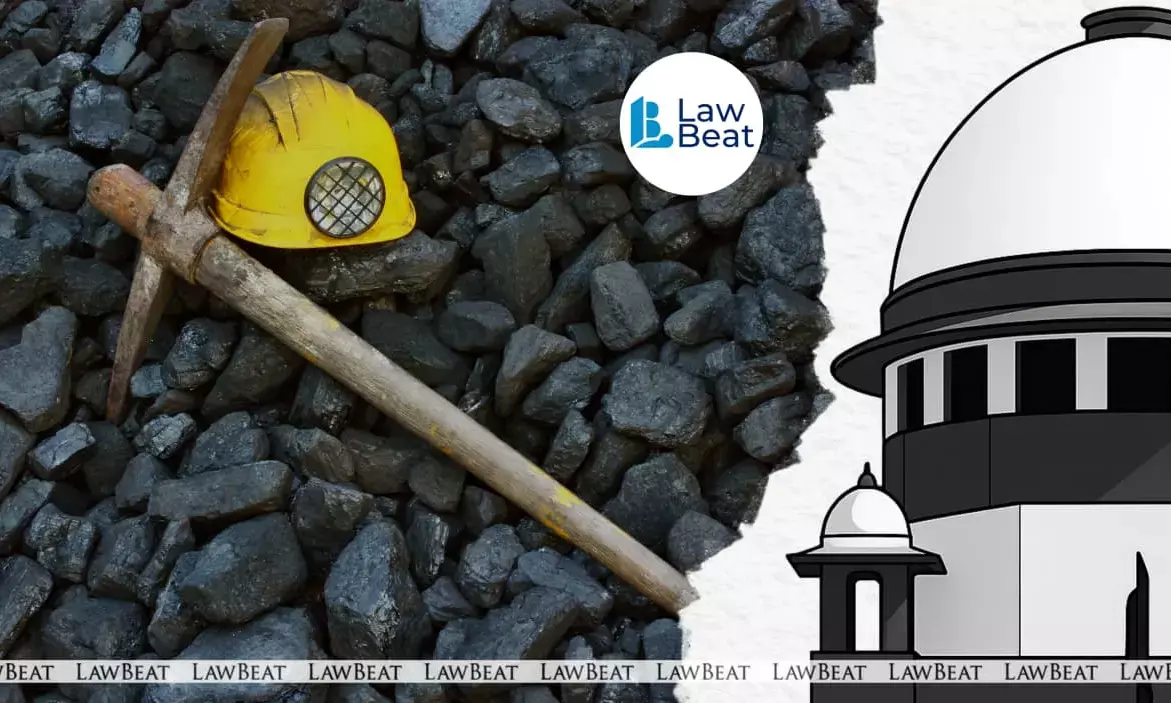20% Coal Price Hike Valid, Says Supreme Court: Interim Policy by Coal India Ltd Upheld

The Supreme Court overturns the Calcutta High Court's 2012 judgment, validating Coal India’s 20% surcharge on coal for non-core industries
The Supreme Court on September 12, 2025, set aside the Calcutta High Court’s judgments that had held Coal India Ltd lacked the authority to frame and notify the Interim Coal Policy of December 15, 2006, under which it had imposed a 20% surcharge above the notified coal price on linked non-core consumers.
A bench of Justices J.B. Pardiwala and R. Mahadevan held that the additional 20% charge was introduced to maintain coal supply and ensure availability in the market for all categories of consumers.
The apex court further clarified that the pricing policy could not be considered an attempt at profiteering, as the increase was tied to sustaining coal distribution rather than a profit-driven motive
"We observe that the Interim Coal Policy made a reasonable classification between the linked industries of the core and non-core sectors and was introduced with the legitimate aim of ensuring an adequate supply of coal in the market by reinforcing the financial capabilities of the appellant company to sustainably operate and invest in the production of coal. Therefore, it can be no gainsaying that the Interim Coal Policy fulfilled the test of reasonable classification and hence, was not contrary to Article 14 to this extent,'' the bench said.
Court expressed its agreement with the decision in Ashoka Smokeless India (P) Ltd Vs Union of India, (2007) that the e auction system was in contravention of Articles 14 and 39(b) respectively for want of reasonableness.
"We find it apposite to consider the situation prevailing at the relevant point of time that necessitated the introduction of such a system. Once this court struck down the e-auction system, the objective of maintenance of supply of coal remained unfulfilled and it became all the more important for the appellant company to ensure adequate production of coal,'' the bench said.
The bench said that the apex court had then placed no restriction on the Coal India Ltd’s powers to regulate prices through the process of price notification as the same was already governed by the CCO (Colliery Control Order), 2000 and the company was competent to notify interim prices by way of the Interim Coal Policy.
Court pointed out the bright line rule as regards the adjudicating of a policy decision by the Government, especially an economic one, is that the courts must exercise judicial restraint and only consider the legality of the decision-making process in terms of the provisions of the Constitution and relevant statutes.
"In respect of price fixation of a natural resource, coal in the case on hand, the courts must confine themselves to the question whether the basis adopted for reaching a particular price is reasonable or not,'' the bench said.
The Coal India Ltd had submitted that the 20% increase in prices for the linked consumers of the non-core sector was reasonable for the sustainable operation, maintenance and development of the coal mines in light of the increase in operational costs of the company.
Though the e-auction system was held to be a price regulation mechanism in the garb of a supply regulation, yet it cannot be denied that one of the objectives of the said policy was to ensure supply to a common man and curb the black market sale of coal, the court noted.
Court said it was not inclined to accept the allegations of discriminatory pricing made by the private limited companies engaged in the business of manufacturing of smokeless fuel for which coal is the raw material, on the ground that all linked industries/consumers must be treated alike.
It did not agree with these companies (the respondents) that the effect of the judgment in Ashoka Smokeless was that the notified prices of 2004 replaced the e-auction prices.
"This court is not empowered to stipulate either explicitly or implicitly, specific prices of a particular commodity as such a decision is purely an economic one and therefore, the prerogative of the legislature or the executive,'' the bench said.
Referring to the Coal India Ltd's object to ensure sustainable operation, maintenance and development of the coal mines, the apex court noted, "We find the said objective to be legitimate in light of the increase in operational costs of the appellant company, and one that subserves the ‘common good’ of maintaining an adequate supply of coal in the market".
Court also rejected the request of refund made by the respondent companies. ''We are in fact dismayed to see that the division bench of the High Court dealt with the issue of refund at great length but chose to dismiss the plea of unjust enrichment raised by the appellant with absolutely no reasoning,'' the bench said.
Court pointed out the principles of unjust enrichment are of general application and it is incumbent upon the courts to not to allow someone a benefit that is not due to them.
It also said, once the respondents filed the writ petition impugning the interim price determined by the appellant, the whole policy became sub-judice and the question of refund became contingent on the result of the litigation.
Due to these developments, the undertaking of the Solicitor General on refund paled into insignificance and such undertaking, therefore, vested no right in the respondents to receive refund, the Supreme Court held.
Case Title: Coal India Ltd & Ors Vs M/s Rahul Industries & Ors
Judgment Date: September 12, 2025
Bench: Justices J.B. Pardiwala and R. Mahadevan
